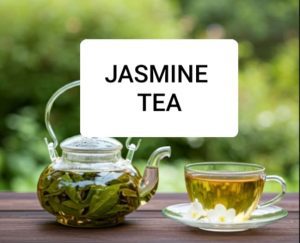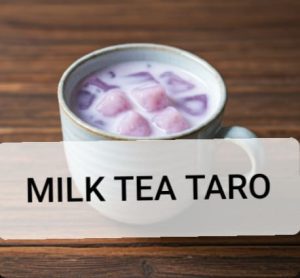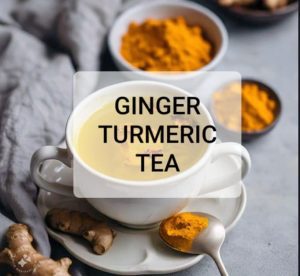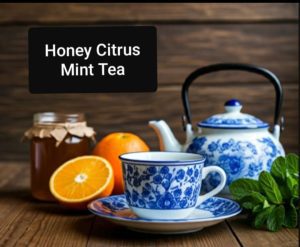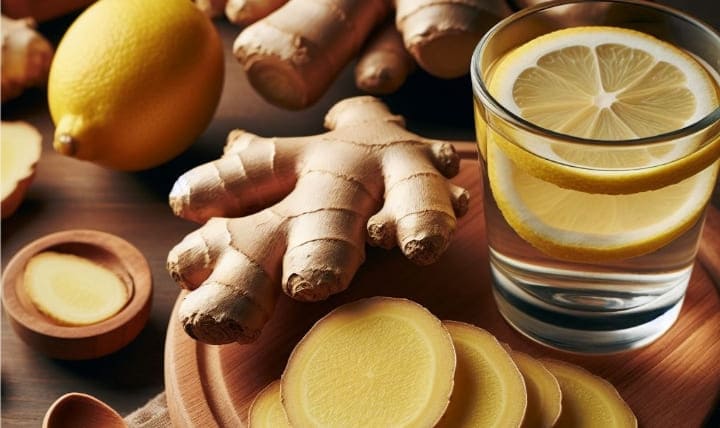
Sore throat is a common symptom of colds, flu, allergies, or infections. It can cause pain, inflammation, and itchiness in your throat, making it hard to swallow, talk, or eat. If you are looking for a natural remedy to soothe your sore throat, ginger may be the answer.
Ginger is a spicy, pungent herb that has been used for cooking and healing for centuries. Ginger possesses a wide array of therapeutic compounds, including gingerol, shogaol, and zingerone, which contribute to its remarkable effectiveness in treating a sore throat. These properties may help ginger to:
- Relieve pain and inflammation in your throat by blocking pro-inflammatory proteins
- Fight infections that cause sore throat by inhibiting bacteria and viruses
- Boost your immunity by enhancing the activity of natural killer cells
- Prevent colds by reducing the risk of respiratory infections
In this article, we will explore the powerful benefits of ginger for alleviating a sore throat and delve into the various ways it can be effectively utilized, and what precautions you should take before using it.
The Remarkable Benefits of Ginger for Soothing Sore Throat

Ginger has many health benefits that can help with sore throat. Here are the key benefits that make ginger a powerful ally in combating throat discomfort:
Benefit 1 – Anti-inflammatory Effects
The pain you experience with a sore throat comes from the inflammation and itchiness in your throat. This inflammation can be the result of your body’s immune response to an infection, or due to an irritant, such as postnasal drip.
The anti-inflammatory effects of ginger can help soothe a sore throat by relieving inflammation. Research suggests that ginger may do this by blocking pro-inflammatory proteins in the body. These proteins cause inflammatory pain and itchiness.
Additionally, research in two different studies shows ginger helped tonsillitis and pharyngitis pain in combination with other herbs. In one study, 7 out of 10 participants with chronic tonsillitis saw a reduction in symptoms of acute tonsillitis. The other study was done in test tubes in a lab, but showed promising results .
Benefit 2 – Antibacterial Effects
Some sore throats are caused by bacterial infections, such as strep throat or tonsillitis. These infections can be treated with antibiotics, but they may also cause side effects or resistance.
Ginger may help fight bacterial infections that cause sore throat by inhibiting their growth and activity. A 2011 laboratory study found that ginger showed a higher antibacterial effect than antibiotics against Staphylococcus aureus and Streptococcus pyogenes. S. pyogenes is the bacterium that causes streptococcal pharyngitis, known as strep throat.
A more recent laboratory study confirmed that the antibacterial effects of ginger are significant.
Benefit 3 – Antiviral Effects
Some sore throats are caused by viral infections, such as the common cold or the flu. These infections cannot be treated with antibiotics, but they can be prevented or shortened with antiviral agents.
Ginger may help fight viral infections that cause sore throat by preventing their replication and spreading. In test tube studies, ginger displays antiviral properties. In animals, researchers also found it to be effective against pain and fever.
Fresh ginger may be beneficial against respiratory viruses. A 2013 laboratory study showed that fresh ginger had antiviral effects in models of respiratory infection. Dried ginger did not have any effect.
Ginger appears to stop the reproduction of a virus. However, there is currently no evidence that ginger can protect against SARS-CoV-2, the virus that causes COVID-19.
Don’t Miss: 7 Transformative Benefits of Ginger Oil for Hair
Benefit 4 – Antioxidant Effects
Inflammation and infection can cause oxidative stress in your body. Oxidative stress is an imbalance between free radicals and antioxidants that can damage your cells and tissues.
Ginger has antioxidant properties that can help protect your body from oxidative stress. Antioxidants may provide protective and healing benefits against disease.
In one study, fresh ginger was found to provide more antioxidative benefits than dried ginger.
Benefit 5 – Pain Relief: Easing Discomfort and Swelling
The soothing properties of ginger extend beyond its anti-inflammatory effects. Ginger can also provide pain relief, easing the discomfort and swelling associated with a sore throat. For quick relief, create a ginger compress by soaking a clean cloth in warm ginger tea. Gently place the compress on your throat for 10-15 minutes and let the warmth and healing properties of ginger work their magic.
Benefit 6 – Boosts Immunity: Strengthen Your Body’s Defenses
One of ginger’s most remarkable benefits is its ability to boost the immune system. A strong immune system is crucial for fighting off infections and speeding up the healing process. Ginger contains antioxidants that help strengthen your body’s defenses, making it more resilient against illnesses. Incorporate ginger into your diet by adding it to soups, stir-fries, or smoothies to reap the immune-boosting rewards.
Benefit 7 – Relieves Nausea: Soothe Your Throat and Stomach
Sore throats often come hand-in-hand with feelings of nausea. Luckily, ginger is renowned for its anti-nausea properties. By alleviating nausea, ginger can provide relief to both your throat and stomach. Sip on ginger tea or chew on a small piece of fresh ginger to calm your stomach and reduce nausea. Feel the soothing effects spread throughout your entire digestive system.
Benefit 8 – Hydration and Comfort: Soothe Dryness and Irritation
A sore throat can feel dry and irritated, making it difficult to swallow. Ginger can help combat this discomfort by providing hydration and soothing the dryness. Prepare a ginger-infused water by adding fresh ginger slices to a jug of water and letting it infuse overnight. Sip on this ginger water throughout the day to keep your throat hydrated and bring relief to the dryness and irritation.
To reap the maximum benefits of ginger for a sore throat, it is crucial to maintain a healthy lifestyle, stay hydrated, and seek medical advice if symptoms persist or worsen.
How to Use Ginger for Sore Throat

There are many ways to use ginger for sore throat. You can consume it fresh, dried, powdered, or as an extract. You can also apply it topically as an oil or a paste.
Here are some of the most popular methods to use ginger for sore throat:
Ginger Tea
Ginger tea is one of the easiest and most common ways to use ginger for sore throat. You can make it by boiling fresh or dried ginger slices in water for about 10 minutes. You can also add honey, lemon juice, or other herbs to enhance the flavor and benefits.
To make ginger tea, you will need:
- 1 inch of fresh ginger root or 1 teaspoon of dried ginger
- 4 cups of water
- Honey, lemon juice, or other herbs (optional)
To prepare ginger tea, follow these steps:
- Peel and slice the ginger root, or measure the dried ginger
- Bring the water to a boil in a pot
- Add the ginger and simmer for 10 minutes
- Strain the tea and add honey, lemon juice, or other herbs if desired
- Drink the tea while it is hot, up to 3 times a day
Don’t Miss: 7 Transformative Benefits of Ginger Oil for Skin
Ginger Juice
Ginger juice is another way to use ginger for sore throat. You can make it by blending fresh ginger with water and straining the pulp. You can also add honey, lemon juice, or other fruits to improve the taste and benefits.
To make ginger juice, you will need:
- 1 inch of fresh ginger root
- 1 cup of water
- Honey, lemon juice, or other fruits (optional)
To prepare ginger juice, follow these steps:
- Peel and chop the ginger root
- Add the ginger and water to a blender and blend until smooth
- Strain the juice and discard the pulp
- Add honey, lemon juice, or other fruits if desired
- Drink the juice while it is fresh, up to 2 times a day
Ginger Lozenges
Ginger lozenges are another way to use ginger for sore throat. You can buy them from a pharmacy or a health store, or make them at home. They can help soothe your throat by providing a constant supply of ginger and other ingredients.
To make ginger lozenges, you will need:
- 1/4 cup of honey
- 2 tablespoons of lemon juice
- 1 teaspoon of grated ginger
- A pinch of cayenne pepper (optional)
- A candy thermometer
To prepare ginger lozenges, follow these steps:
- Line a baking sheet with parchment paper and spray with cooking spray
- In a small saucepan over medium heat, combine the honey, lemon juice, ginger, and cayenne pepper if using
- Bring the mixture to a boil and cook until it reaches 300°F on a candy thermometer, stirring occasionally
- Carefully pour the mixture onto the prepared baking sheet and let it cool slightly
- Cut into small pieces with a knife or scissors and wrap them in wax paper
- Store the lozenges in an airtight container at room temperature
- Suck on a lozenge as needed, up to 4 times a day
Ginger Oil
Ginger oil is another way to use ginger for sore throat. You can buy it from a pharmacy or a health store, or make it at home. You can apply it directly to your throat or inhale it as a steam.
To make ginger oil, you will need:
- 1/4 cup of grated ginger
- 1/2 cup of olive oil
- A glass jar with a lid
To prepare ginger oil, follow these steps:
- Place the grated ginger in a glass jar and cover it with olive oil
- Seal the jar tightly and shake well
- Place the jar in a sunny spot for 2 weeks, shaking it daily
- Strain the oil and discard the ginger
- Store the oil in an amber bottle in a cool place
To use ginger oil for sore throat, follow these steps:
- Apply a few drops of oil to your throat and massage gently
- Or add a few drops of oil to a bowl of hot water and inhale the steam for 10 minutes
- Repeat as needed, up to 3 times a day
Ginger and Honey Mixture
Combining ginger with honey creates a powerful concoction for soothing a sore throat. Here’s how to prepare it:
- Grate a one-inch piece of fresh ginger.
- Mix the grated ginger with one tablespoon of raw honey.
- Consume one teaspoon of the mixture several times a day, allowing it to slowly coat the throat and provide relief.
Ginger Steam Inhalation
Steam inhalation with ginger can help alleviate congestion and soothe a sore throat. Follow these steps:
- Add a few slices of fresh ginger to a pot of boiling water.
- Lower your face towards the pot, covering your head with a towel to trap the steam.
- Inhale the steam deeply through your nose and mouth for 5-10 minutes.
- Be cautious to avoid any burns from the hot steam.
Ginger and Lemon Gargle
Gargling with a mixture of ginger and lemon can provide immediate relief to a sore throat. Here’s how:
- Squeeze the juice of half a lemon into a glass of warm water.
- Add a teaspoon of grated ginger to the lemon water mixture.
- Stir well and use the mixture to gargle for 30 seconds, ensuring it reaches the back of the throat.
- Spit out the mixture and repeat as often as needed.
Ginger Infused Water
For a simple and refreshing way to incorporate ginger into your routine, prepare ginger-infused water:
- Slice a one-inch piece of fresh ginger into thin rounds.
- Add the ginger slices to a pitcher of water and refrigerate overnight.
- Drink the ginger-infused water throughout the day for a continuous intake of its healing properties.
Remember, consistency is key when using ginger for sore throat relief. Incorporate these methods into your daily routine and experience the natural healing power of ginger.
Precautions and Side Effects
Ginger is generally safe to use for sore throat, but it may cause some side effects or interactions in some people. You should consult your doctor before using ginger if you have any of the following conditions or situations:
- Allergy to ginger or other plants in the same family, such as turmeric or cardamom
- Bleeding disorders or blood thinners, as ginger may increase the risk of bleeding
- Diabetes or medications that lower blood sugar, as ginger may lower blood sugar too much
- Gallstones or gallbladder problems, as ginger may increase bile flow
- Heart conditions or medications that affect heart rate or blood pressure, as ginger may affect them too
- Pregnancy or breastfeeding, as ginger may affect hormonal balance or uterine contractions
You should also avoid using ginger if you have any signs of an allergic reaction, such as:
- Rash or hives
- Itching or swelling
- Difficulty breathing or swallowing
You should also stop using ginger if you experience any of these side effects:
- Heartburn or acid reflux
- Stomach upset or diarrhea
- Mouth irritation or dryness
You should also limit your intake of ginger to no more than 4 grams per day, as higher doses may cause more side effects.
Conclusion
We have delved into the powerful benefits of ginger for soothing a sore throat. From its anti-inflammatory and antibacterial effects to its ability to provide pain relief and boost immunity, ginger is a natural remedy that offers holistic relief. Incorporate ginger into your routine and let its healing properties bring comfort and relief to your throat. Embrace the power of nature and experience the transformative benefits of ginger for sore throat relief.
FAQs About Benefits of Ginger for Sore Throat
1. Can ginger help with viral sore throat infections?
Yes, ginger has natural antimicrobial properties that can help inhibit the growth of viruses responsible for sore throats. Consuming ginger regularly may aid in reducing the duration and severity of viral infections.
2. Is ginger safe to use for sore throat during pregnancy?
While ginger is generally considered safe for consumption during pregnancy, it is always advisable to consult with a healthcare professional before using any natural remedies, especially during pregnancy.
3. Can I use ginger as a preventive measure for sore throat?
Yes, incorporating ginger into your daily routine can help strengthen your immune system and potentially reduce the risk of developing a sore throat. However, it is important to maintain overall good health practices and consult with a healthcare professional for personalized advice.
4. Can ginger be used in combination with other natural remedies for sore throat?
Yes, ginger can be combined with other natural remedies like honey, lemon, or turmeric to enhance its soothing properties. However, it is advisable to research potential interactions and consult with a healthcare professional before combining multiple remedies.
Related Posts
Learn more:
